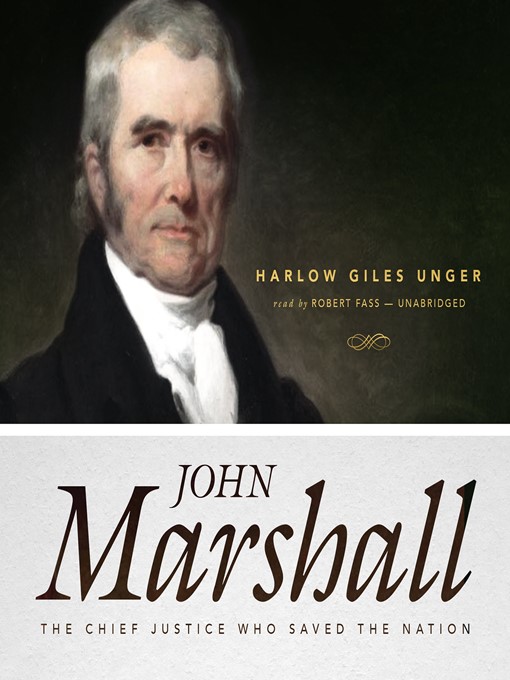
John Marshall
The Chief Justice Who Saved the Nation
کتاب های مرتبط
- اطلاعات
- نقد و بررسی
- دیدگاه کاربران
نقد و بررسی

By varying his tone, pacing, and volume, narrator Robert Fass brings this portrait of Chief Justice John Marshall to dramatic life. The adjustments in his reading style seem natural and appropriate. In quoting the fiery Patrick Henry, Fass nearly yells (although the editor adjusts the volume, so the effect is there without shattering the listener's eardrums). Then he takes a more theatrical tone with the words of Daniel Webster. For Marshall himself, he adopts a studied tone, which is fitting for the champion of a centrist judiciary. Fass generally takes a solemn approach for quoting court rulings. In the rest of the work, Fass carries the reading along smoothly, with an engaging tone. It would have been easy to fall into a somnolent rhythm, but Fass resists. R.C.G. © AudioFile 2014, Portland, Maine

July 28, 2014
One of the most illustrious members of the Founding generation, John Marshall attended Virginia’s ratifying convention, served in the state legislature and Congress, was a diplomat and Secretary of State, and ultimately became the nation’s most influential Chief Justice. He was also among the best-liked men of his time. But what Unger (Mr. President), a biographer of John Quincy Adams, Noah Webster, and George Washington among others, delivers is more hagiography than biography. To boot, he takes sides in the political conflicts of the early nation. Unger has it in especially for Marshall’s second cousin Thomas Jefferson. Among the “enemies of the federal government” of which he became president, Jefferson, author of the Declaration of Independence, “abandoned the Revolution,” built an “incongruously pretentious home,” had a “mean-spirited gossip” of a daughter, may have made near “treasonous” decisions as governor, wielded “all but dictatorial powers” as president, “unleashed his political attack dogs,” and “nurtured political divisions and chaos.” While its facts are straight, the book’s interpretation is extreme and offers nothing revelatory. Moreover, it lacks the authority of recent studies of Marshall by R. Kent Newmyer and Jean Edward Smith. Maps & illus.

























دیدگاه کاربران